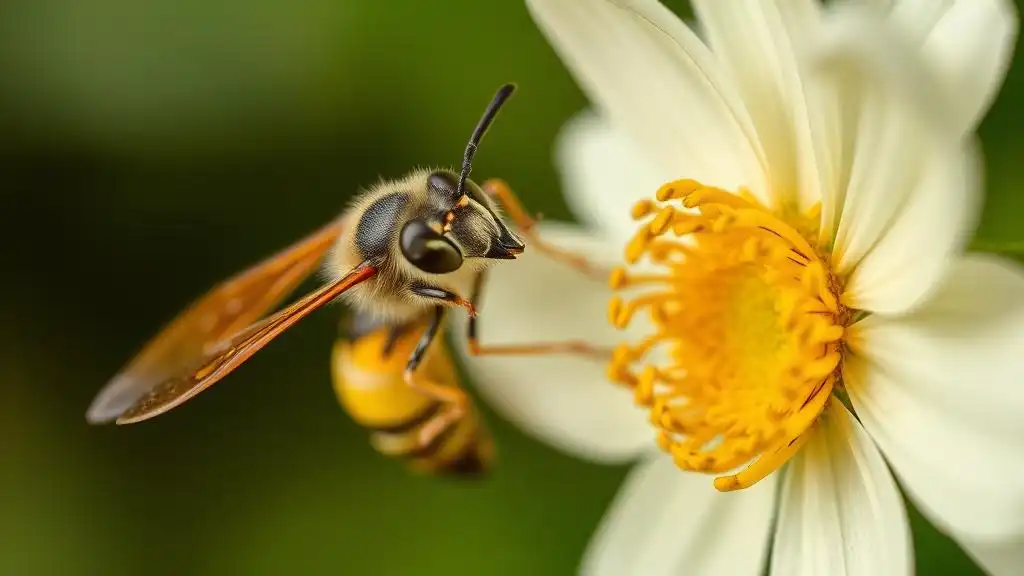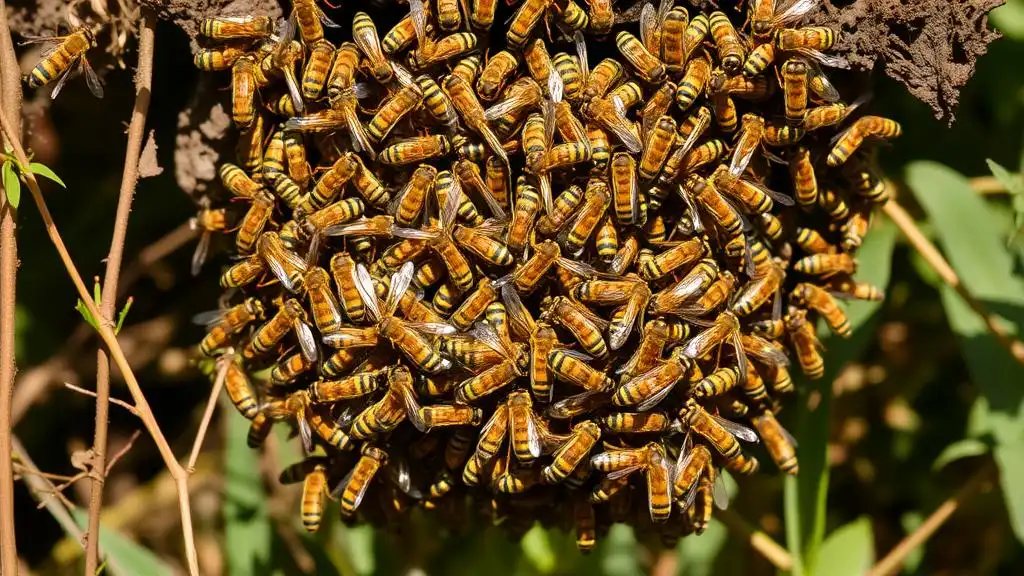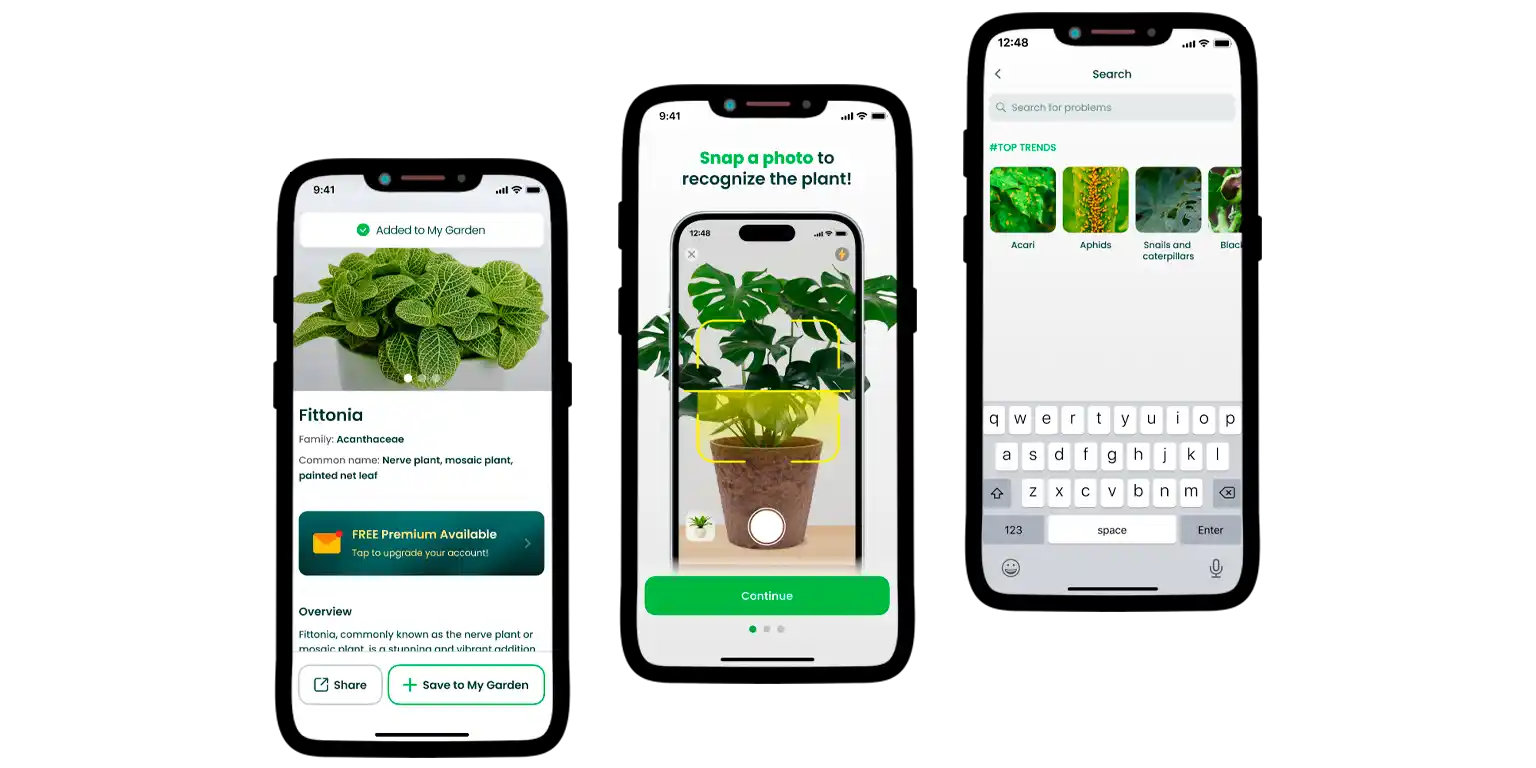
Discover the ecological importance of wasps in your garden. Learn how these misunderstood insects contribute to pest control, pollination, and biodiversity, debunking common myths and offering tips on attracting them harmlessly to your garden for a balanced ecosystem.
Contents:
Nature is a sophisticated organization with all living beings, whether of floral or faunal origin, maintaining harmony and promoting a well-balanced collaboration. Though humans may not be fond of some creatures like wasps, the ecological importance of these insects is irrefutable.
The perception of wasps is indeed controversial, for they can pose significant threats to the whole ecosystem under certain circumstances. So, do wasps provide any benefit in fact? Why should we stop hating them but respect and understand their behavior? Let us see.

Debunking Wasp Myths: Friend or Foe?
Reputation always comes ahead of the real value, and wasps, who are notorious for being intrusive and annoying, suffer from this situation, too. Spawned by the sick experience of some gardeners and unlucky passers-by, wasps are unfairly claimed to bring more harm than good. However, the reality is a bit different.
One of the most pervasive myths is that wasps are inherently aggressive and prone to stinging humans/animals and destroying plants. In the real world, wasps can harm those who harm them first, which is the basic rule of defense. In turn, their place in the ecosystem cannot be eliminated because of their contribution to pest control, pollination, and the overall health of the environment.
Of all the estimated thousands of species, there exist two types of wasps, i.e., solitary wasps and social ones. And if solitary species live in total harmony with their surroundings, as their females create their own nests and breed offspring there, the social species live in large communities that hunt closer to the areas inhabited by humans. When grouped, these wasps may be dangerous for the environment due to their destructive power and hostile behavior, though this is not really common.
The Ecological Value of Wasps
What are the benefits of having wasps? Though most people fear stings and wasp infestation, these might be avoided with the proper approach and a deep understanding of their behavior. For sure, the place of wasps in the realm of agriculture holds significant importance in several directions, i.e., pollination, biodiversity, and pest control in particular.
Let Pollination Begin: Wasps as Efficient Pollinators
Although wasps are not considered the most prominent pollinators like bees and butterflies, for example, they may still contribute to plant reproduction and biodiversity within the given area. At times, when adult wasps are searching for nectar they need to consume, they might accidentally gather pollen via hairs and transfer it between flowers in the end. The efficiency, though, is not as high due to the smoother bodies and their behavior.
Wasps in Organic Pest Control
One of the most notable contributions of wasps is their position in pest control. In general, predatory wasps of social and solitary origin, whose approaches differ, can hunt aphids, caterpillars, spiders, and other herbivorous insects. While social wasps may hunt different types of pests at the same time with no focus on the particular species, solitary wasps are more picky, for each variety is used to ceasing their preferred genus only.
As a rule, adult wasps do not eat their prey but kill and feed their offspring or infect it and digest carbs, i.e., the sugars it produces. And while the intention of killing insects does not need additional explanations, the mechanism of wasp parasitism works as follows: parasitic wasps generally lay eggs in/on pests for the offspring to destroy hosts, like paper wasps usually do.
What are the benefits of wasps for pest control in modern agriculture? These days, most botanists claim that wasps are perfect for biological control purposes since they can replace synthetic means and leverage the power of nature only. The most useful idea might come down to attracting local social species, when necessary, thus reducing the cost of supplementary tools and time.

How to Harmlessly Attract Wasps to Your Garden
Gardening is always a complex process that covers not only plants but fauna and its environment as a whole. Those who acknowledge the value of wasps can also benefit from their presence and turn it into a fine experience, rather than a struggle and persistent challenges. Nevertheless, wasp introduction should be always controlled in order to minimize the risks of stings and ensure a harmonious coexistence.
Cultivate Nectar-Rich Flowers and Fruit-Bearing Plants: Sometimes, planting the floral creations that provide flowers for wasps to feed on is enough, as nectar is their privacy source of carbs. Consider incorporating such plants as alyssum, echinacea, mint, or fruit trees, and observe wasps get attracted to your garden.
Provide Water Source: Like any living being, wasps require water to survive. When combined with other efforts, providing a water source can draw wasps to the garden successfully. However, it should be done with thorough preparation and constant control for the water not to become a breeding ground for mosquitoes and other malevolent insects.
Avoid Chemical Pesticides: Sustainable gardening itself presupposes avoiding synthetic means of pest control, since pesticides may potentially harm the environment, including plants and insects like wasps, too. Hence, one should always take into account environmentally friendly options of biological, mechanical, and relevant types of control.
Control Newly Emerging Nests: Though it does not refer to attracting wasps, it is still a major step toward a healthy garden with a biodiverse ecosystem at its best. When one notices a new wasp nest in an inconvenient location, it is important to promptly knock it down. The queen will likely relocate elsewhere (not far away, as claimed).
Garden Under Control: Tools to Manage Your Yard
Wasp management is one of the numerous tasks that may eventually appear on your gardening path; but with proper support, this experience should become smoother and more rewarding, for sure. Among the most innovative tools available on the digital market, the AI Plant Finder app seems like a suitable option for those who need 24/7 assistance in the garden and outside it as well.
AI Plant Finder contains everything you need for preparation, on-site procedures, and after the season ends. One of the most prominent features is plant and disease ID which offers quick yet precise recognition on the basis of the uploaded/taken pictures only. In other words, the app can accurately identify 300,000+ species and diagnose a plant, when it suffers from unknown health issues. Just take a photo directly in the app and let the system analyze it for prompt results and useful tips.
What is more, this platform excels in profound assistance when on the spot. Not sure if you can remember about essential procedures like watering sessions, pruning, etc., on time? Cannot keep track of your garden inhabitants in one place? The AI Plant Finder app launched “My Garden”, a convenient space for efficient navigation in your garden log, with plant care reminders and more. A great tool for novices, a fine helper for pros.

The benefits of wasps usually comprise the subject of much debate. Some people assert that wasps cannot but harm humans and animals, while others try to prove their importance for the gardening routine and biological garden management. What is undeniable is the importance of wasps present in the ecosystem and their role in its functioning in the main.